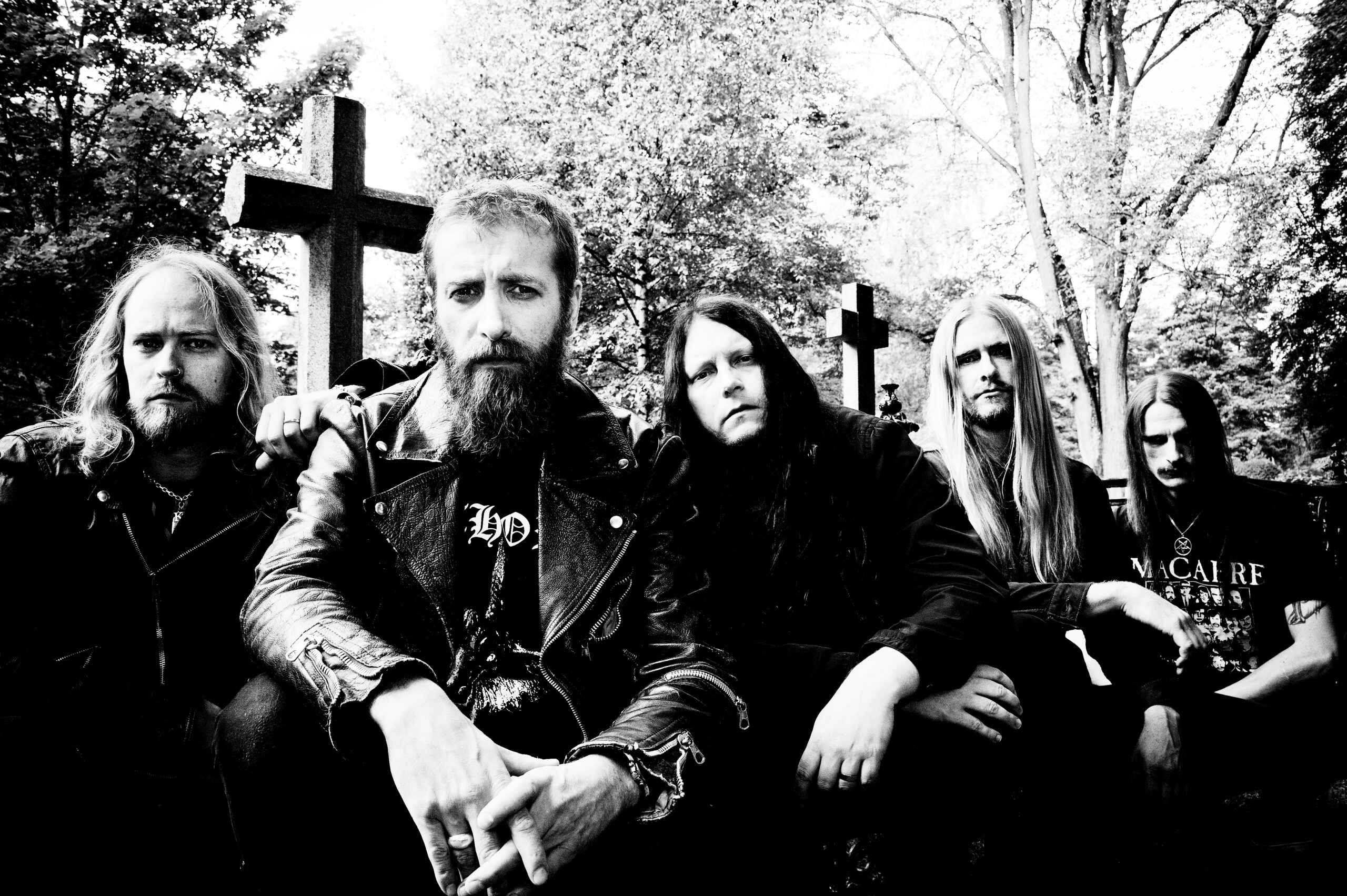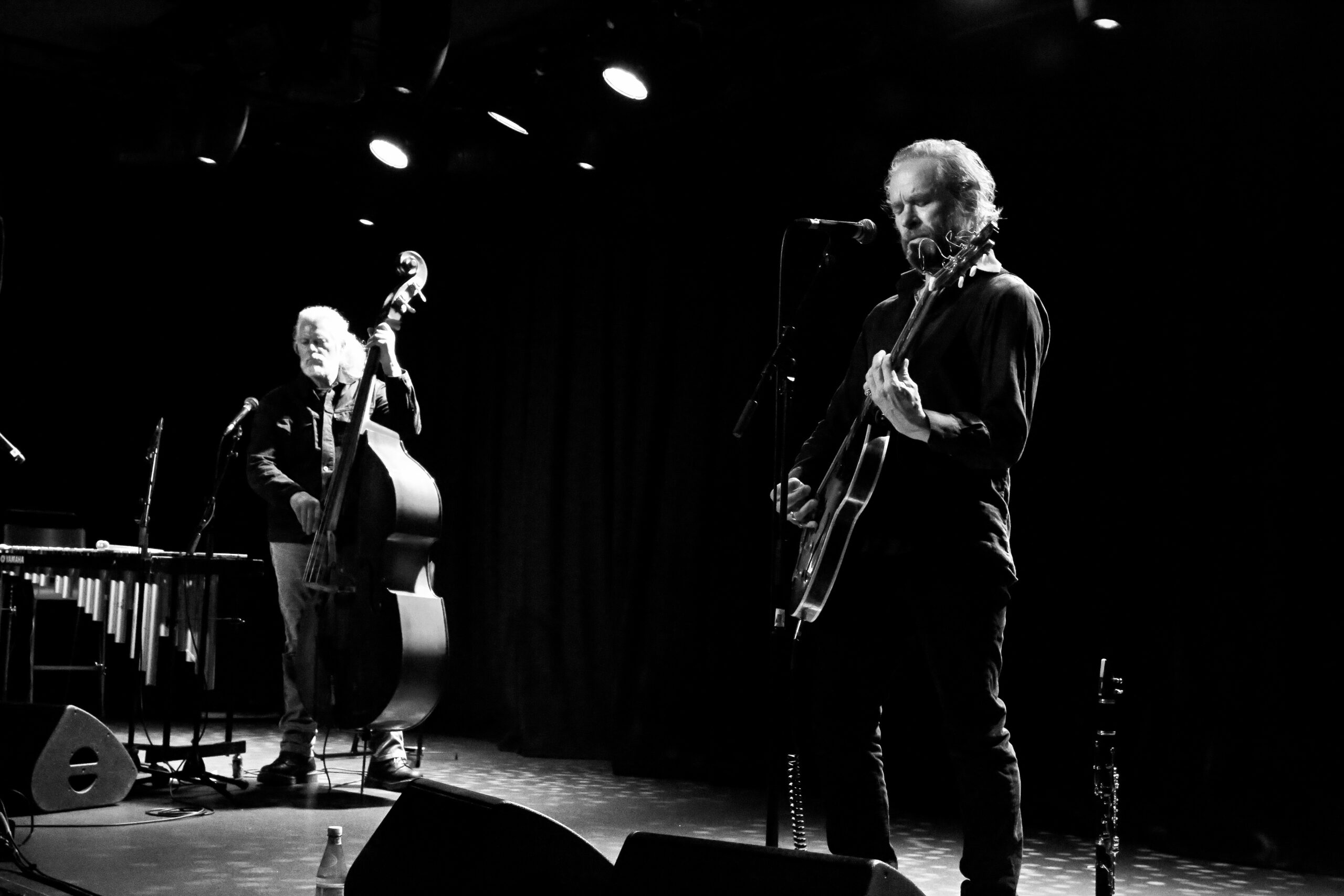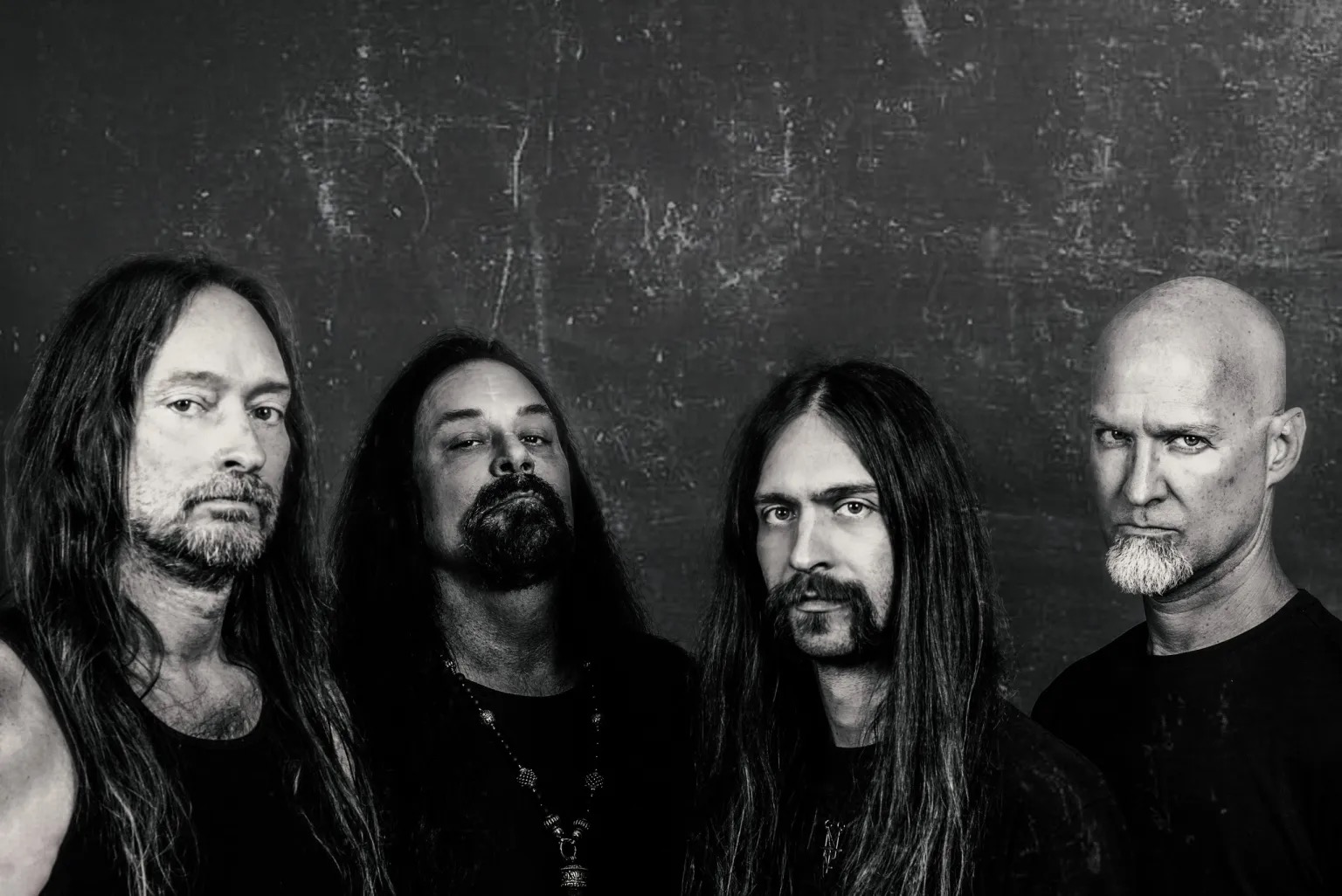With only an EP and LP to their name, Nine Shrines have beaten the odds, gaining over a million streams of their debut single and building a considerable name for themselves in a relatively short space of time. Signed to the excellent Mascot label, the band released their acclaimed, full-length debut, retribution therapy and are currently touring the album.
Formed by Andrew Wetzel (Attack Attack!) and Andrew Baylis (soon joined by Devon Voisine), the band quickly released the Misery (its lead single, king of mercy being the aforementioned success), before developing their sound (alongside producer Dan Korneff) still further for their debut long player. Recently, we caught up with a tired Andrew (the band are currently out on tour) to discuss all things Nine Shrines – you can find out more below:

All the members of Nine Shrines have a past – you came out of Attack! Attack! and other members of the band came from Life on Repeat… so, for you, when you came out of Attack! Attack! and throught about putting this band together, how did you go about finding the people who would be involved.
Well, honestly, at first I didn’t know if I wanted to start another band or join another band or even do anything in music at all. But, it was just sort of, you know, through a stroke of luck or fate or whatever you want to call it that the other guitarist, Andrew Baylis, and I had a mutial friend and they suggested that we should meet and talk and maybe we’d want to work on music together and both of us were like “whatever, I don’t want to talk to that guy!”…
Some time passed and sure enough he and I were texting then we talked over the phone and then, we both had some free time and he asked if I wanted to come over to his condo and start writing some music, figure it out and see what was going on. And at that point I just wanted to escape Ohio, so I was like “yeah, let’s do it man, let’s go!” So, that’s what I did, I put a bunch of shit in my car and went out there and we started working on some songs and I met Devin, our bass player, who was living next door to Baylis at the time, and we just started hanging out and looking for other band members.
Obviously, when you had the line-up that was stable, you set about putting together the Misery EP, right, and that was self-produced… can you tell me a little bit about the process of creating that EP and what you hoped to achieve with it at that point?
The Misery EP, we wrote a lot of it… some of it we wrote at my parents’ house… and then a lot of it we wrote at Baylis’ and Devin’s house in Ocean City, Maryland. And, really, the whole thing was a discovery process for us because we weren’t exactly sure what Nine Shrines sounded like yet. Baylis and I had already been together for a year / a year and a half at that point and we’d already written fifteen or twenty songs and we it just didn’t seem right, it didn’t really sit exactly where we wanted. So, once we added Devin and Chris in the band, we all took three or four weeks off and we went out there and the house is, like, in the middle of a field, so you can barely escape. And we just sat out there and started writing and trying to figure out what the band was going to sound like. And ‘King of mercy’ emerged as one of the first songs to come out of that whole process where we heard it and then we kinda looked at each other and we said “yeah, this is it, I think we’re getting somewhere; I think this is going to be the sound that we’re looking to get.”
And king of mercy, that was a huge achievement for you guys – you hit one million streams – that sort of thing almost feels like the sort of thing the press are saying doesn’t happen for rock bands anymore… were you surprised when the stream went supernova?
A little bit, yeah. There’s so much competition and it’s so hard to get out there, which is amazing because of how connected we are via technology. But then, that’s a lot of the problem. Definitely, in America, where fans are just drowning in music and bands, it’s like impossible to find a way to poke out and to stick out from the pack. So, once it does start to happen, it’s really exciting and you start to panic a little bit because you start to think “oh my god, people are starting to listen so we need to work to keep it growing and continue to hold their attention!” You have to get out on tour and figure out how to grow this thing…
In terms of growth, when you went to do Retribution Therapy, you approached Dan Korneff to do the production on that – how did you go about finding him and what sort of qualities were you looking for in a producer?
Well, Baylis and I had actually done some demos with Dan back in early 2015 and we just happened to… we just reached out to him on a whim. He was interested and had tried to help develop the band and we did some stuff with our old singer with him and we’d become really good friends with him – he’s such a great guy and he’s insanely talented, he’s a brilliant producer. You know, he builds a lot of his own gear – I mean he’s a huge tech person and he’ll soldier equipment and do some modifications and the dude is just insanely knowledgeable about recording. So, when it came to the time to choose someone to do our album, that was always the guy that we wanted because we were very confident in his abilities. We trust him and his work sheet speaks for itself. He’s worked with tons of bands, like My Chemical Romance, Papa Roach, Pierce the veil… it just goes on and on and on. The other thing that we knew was that, if we wanted to get a record that sounded unique to us, that was the sure-fire person to do it. And he was. There’s a bunch of one-of-a-kind gear that we used on this record that had been custom built just for us to use and, you know, I think that a lot of that forethought and that technical savvy shines through in the record – it makes it that much more aggressive and polished.
As a record you’ve got a really good balance between having that rough, raw edge, in the guitars and vocals but then there’s that quality that allows the melodies to shine through – and that’s a really difficult balance to achieve I think…
Yeah, absolutely, I agree…
There are two songs that stand out – hymn and conjure – I like the way that those two pieces work together and the way that you experimented with the formula there…
Yeah, definitely.
It still seems, though, that lyrically and visually, when you did the misery EP, you had the image of the souls being sucked out, there still seems to be a certain mistrust of the industry – do you find that working within the format of the music industry is a challenge?
Yeah, I mean I think that working in entertainment, period, is a huge challenge. But the more I talk to my other friends or our fans or just random people, the things that we struggle with professionally really aren’t that much different to the things that anybody else struggles with in their profession. It all boils down to the need to relate with and deal with other people and they can be fun to work with or not fun to work with, so, you know, for our album… some of it has to do with the challenges of working within the music business but, honestly, a lot of it is more to do with the challenges of life in general.
When it comes to producing the lyrics, do the band as a whole have any discussions over it, or is that something that you leave predominantly to Chris to deal with?
Chris definitely has a very large hand in the lyrics, but we don’t really have a set formula that we use to write stuff. Every song comes together a little bit differently and pretty much everybody in the band writes and so, whether it’s an instrumental part or a concept or, you know, someone just hums a part and then play guitar over it… Chris and I spend a lot of time together going over the concepts and the lyrics and making sure that we both thought it was engaging enough. He really likes to find ways to use nursery rhymes and stuff like that just to add a level of familiarity to lyrics before e you’ve even heard what we’re saying. So, he definitely has a lot to do with it, but that’s not to say that the rest of us don’t pipe up and suggest switching lines or having some other ideas. We’re kind of all over the place when it comes to writing.
The nursery rhyme element is interesting because it provides a neat hook to get people in from the start…
Mmmhmm
Can you tell me about the artwork for this record because it’s quite aggressive – how involved were the band in choosing the imagery that supports the music?
We spent a while talking about the concept for the artwork. We wanted to make sure it had the same feel as the music. One of the big things that we said and the thing that we’ve always said, is that we want a guy, we need a guy – if you look at Disturbed, if you look at their records, they’ve got a guy. Five Finger Death Punch too, they’ve got the skull guy who’s present in their artwork and the list goes on – there are tons of really great bands. Iron Maiden have their ghoul, you know? So, we just kind of saw that and we were like “yeah, we want a guy – our guy – who can be like our dude!” We put this concept out in ‘Nimrod’, which has our cartoon character, our kind of mascot for the band, and we want to have him on every record. And we have our music video for ‘Nimrod’, it’s kind of a little video demonstrating the formation of our character. So, that was our big goal, to make sure that we ended up with some kind of fictitious character that we could channel our band through.
So, you foresee that character as a re-occurring theme across other artwork and videos?
Yeah, we’d really like it to be.
That seems like another great way to engage a fanbase – something they can hook into and part of what is theirs…
Hmmm
How did you end up on Mascot – it seems to be a great label, it seems to have a lot of care for its artists – but it seems quite recent that they’ve got heavier artists on the roster, so how did you get involved with them?
Um… we, our old manager knew somebody over at Mascot and, right around the time that we finished the Misery EP, we were getting ready to put it out on our own and we had put out a music video and we had some songs that were coming out on Spotify and stuff and Mascot approached us and the president of the North American Branch came out and saw us play and, from that, they decided to sign us. From that, we negotiated the finer details, signed and went out on tour.
What do you see as being next for the band?
Our only priority right now is to stay on the road as much as possible, so we’re already looking and working on confirming more tour dates wherever we can get them at this point.
Any final words?
Um, I mean, just thank you so much for taking the time to find us and to listen to us. I’ve been watching – on Spotify we can see who listens to our music so I’ve literally been watching the band grow in the UK and Europe and that’s super-exciting. It’s just really great to see that people that live 6/7000 miles away from us are taking the time to jam our stuff and to subscribe to our facebook and send us messages. We really do appreciate it and we can’t wait to come over to the UK and play a little rock show for you guys.










Leave a Reply